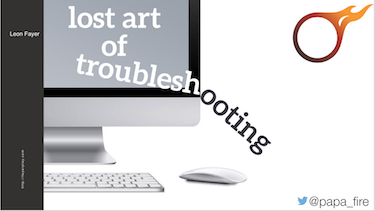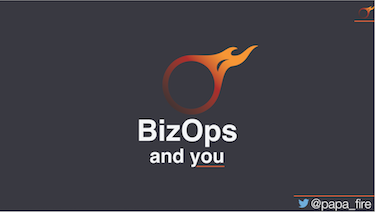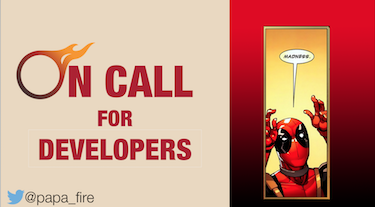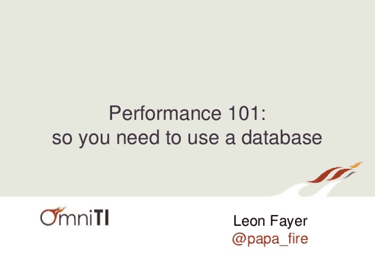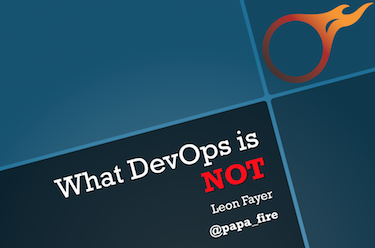Sometimes we say things in public.

A talk about different biases that skew the technical decision process we deal with in our day-to-day operations.
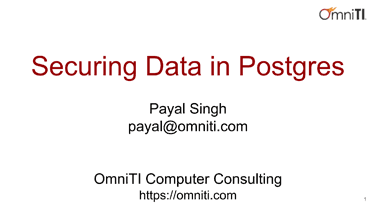
Securing Your Data on PostgreSQL
A look at the many options Postgres Provides for Securing your Data

Pandas - Lazy at Mating, Lively at Mining
Kick start your data mining activities without having to invest time learning complicated tools.
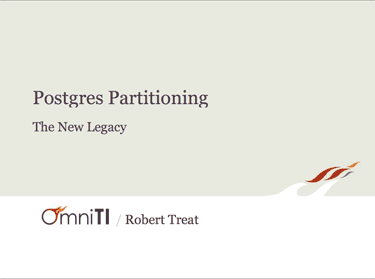
PostgreSQL Partitioning - The New Legacy
Covers Postgres Partitioning including changes in Postgres 10 and 11
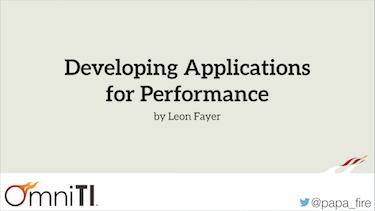
Developing applications for performance
Delivered at CoderCruise
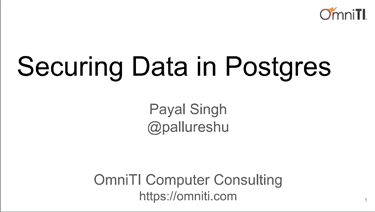
Securing Your Data on Postgres
Securing Your Data on Postgres
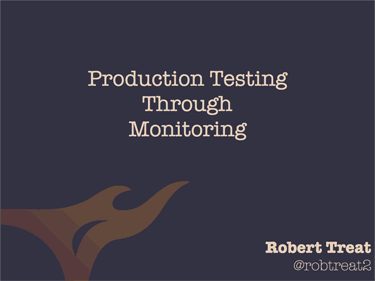
Production Testing Through Monitoring
Given at DevopsDays Salt Lake City 2017

Building the right architecture for you
Delivered at DevOpsDays Austin 2017
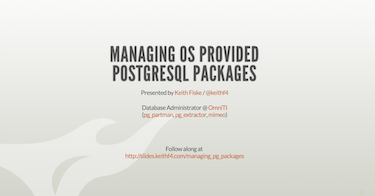
Managing OS Provided PostgreSQL Packages
Managing OS Provided PostgreSQL Packages
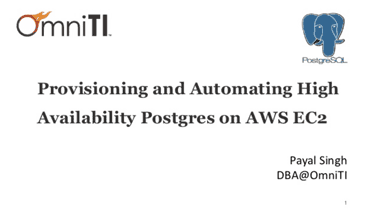
Provisioning and Automating High Availability Postgres on AWS EC2
Presented at PGConf US 2017
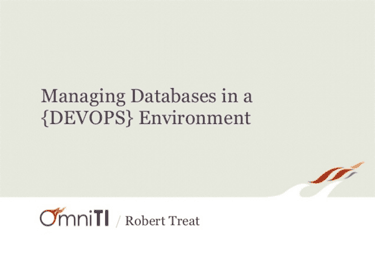
Managing Databases In A DevOps Environment
Delivered at PGDayPhilly 2016, this talk covers how configuration management, monitoring, and rapid deployments are impacting how we think about database management.

Less Alarming Alerts - SRECon 2016
Presented at SRECon 2016

Production testing through monitoring
Presented at DevOpsDays Charlotte

Postgres 9.4 Replication Tutorial
A Tutorial For Setting Up Postgres Replication

Keeping Your Product Owner Productive
Presented at DevOpsDays Austin

Your goat antifragiled my snowflake!: Demystifying DevOps Jargon
Presented at ChefConf 2015

Think Your Postgres Backups and Disaster Recovery Are Safe? Let's Talk.
Presented at PGConfNYC 2015

When PostgreSQL Can't, You Can!
Presented at PGDay.CZ

What Ops Can Learn From Design
Delivered at Velocity Europe in Barcelona

PHP performance 101: so you need to use a database
Presented at PHP World, November 2014

Improving DevOps through better monitoring
Presented at DevOpsSummit, November 2014

Achieving PCI Compliance with Postgres
Presented at PGConf 2014

Managing Databases in a {DEVOPS} Environment
Presented at PGOpen 2011 and Velocity 2011

Monitoring and Observability in Complex Architectures
What needs monitoring and why

Advanced WAL File Management with OmniPITR
Presented at PGEast 2011

When PostgreSQL Can't, You Can
Filling the gaps

Building Scalable Systems: an Asynchronous Approach
Asynchronous Approach to Building Scalable Systems

Deploying Maximum HA Architecture with PostgreSQL
Deploying maximum HA architecture with PostgreSQL

Disposable Environments at Scale
Presented at ZFS Day 2012

High-performance Robust HTTP Front-ends
Presented at RIT++

Monitoring is easy: why do we suck at it?
Monitoring presentation

Scalable Internet Architectures
Scalable Internet Architectures

